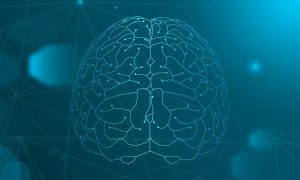
Dr. Laura Jansons
Dr. Jansons is in private practice in Buffalo Grove, Illinois. She provides neuropsychological assessment for adults and children and isShe has been providing direct therapy, assessment, professional training, and scholarly contributions in her field since 1990.
Dr. Jansons began her career at Bradley University in Peoria, Illinois where she earned her bachelor’s degree in Clinical Psychology and master’s degree in Human Developmental Counseling. Her doctorate is from the Illinois School of Professional Psychology and she completed her Neuropsychology Certificate Training at Fielding Graduate University. She is a Board-Certified Fellow of the American Board of Professional Neuropsychology. She is also Board Certified in Neurofeedback with the Board Certification International Alliance (BCIA).
Dr. Jansons’ research interests are in Large Scale Brain Systems, neural network dynamics, and cerebellar and vertically organized brain functioning. She is a co-partner in many projects including a start-up company for developing a web portal for patients and advanced clinicians, and she participates in the technical development of custom brain entertainment therapies. She is also a performing musician.
Neuropsychology, Psychotherapy, and Neurofeedback
Neuropsychology
Neuropsychologists are instrumental in diagnosing congenital cognitive and neuropsychological issues in children and adults. Dr. Laura Jansons’ expertise in the brain-behavior relationship provides the highest quality neuropsychological assessment and consultation for patients and their families, so that the patient’s clinical team can focus on maximizing their quality of life, and help them realize their potential.
For Adults, testing can identify weaknesses in specific areas. Neuropsychological testing is very sensitive to mild memory and thinking problems that might not be obvious in other ways. When problems are very mild, testing may be the only way to detect them. For example, testing can help determine whether memory changes are normal age-related changes or if they reflect a neurological disorder. Testing might also be used to identify problems related to medical conditions that can affect memory and thinking, such as diabetes, metabolic of infectious diseases, or alcoholism.
Test results can also be used to help differentiate among illnesses, which is important because appropriate treatment depends on accurate diagnosis. Different illnesses result in different patterns of strengths and weaknesses on testing. Therefore, the results can be helpful in determining which areas of the brain might be involved and what illness might be operating. For instance, testing can help to differentiate among Alzheimer’s disease, stroke and depression. Your physician will use this information along with the results of other tests, such as brain imaging and blood tests, to come to the most informed diagnosis possible.
For Children, testing can explain why your child is having school problems. For example, a child may have difficulty reading because of an attention problem, a language disorder, an auditory processing problem, or a reading disability. Testing also guides the pediatric neuropsychologist’s design of interventions to draw upon your child’s strengths. The results identify what skills to work on, as well as which strategies to use to help your child.
Testing can help detect the effects of developmental, neurological, and medical problems, such as epilepsy, autism, attention deficit, hyperactivity disorder (ADHD), dyslexia, or a genetic disorder. Testing may be done to obtain a baseline against which to measure the outcome of treatment or the child’s development over time.

